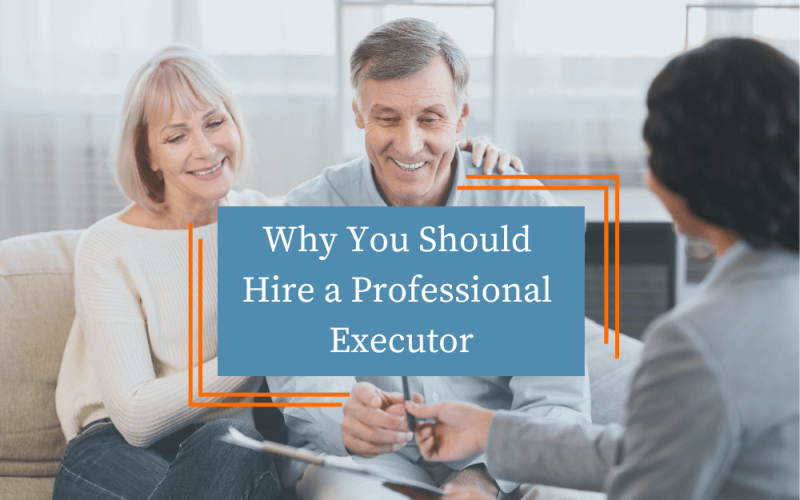How To Find A Competent Estate Planning Attorney


The following questions were designed to help individuals find competent tax and estate planning counsel in states, such as Virginia, where there is no board certification of lawyers as estate planning specialists. This list is not exhaustive and it is not suggested that a wrong answer to an questions should disqualify an attorney from consideration. However, individuals may be able to judge from the answers, as a whole, whether the attorney they are consulting has adequate expertise and experience to handle their critically important estate planning matters.
Questions To Ask The Attorney
- How long have you been doing estate planning?
- What percentage of your practice is in estate planning?
- Which do you do more: estate planning or probate?
- How many estate plans do you complete each month on average?
- Are you an active member of any estate planning specialty organizations or committees? If so, what are they?
- What types of trusts have you prepared? For example, charitable remainder or lead trusts, life insurance, dynasty or personal residence trusts?
- How many hours of continuing legal education in tax and estate planning do you generally complete each year?
- What was the last estate planning class or professional meeting you attended?
- How many estate planning classes or continuing professional education programs have you taught to CPA’s, certified financial planners, lawyers and/or insurance professionals?
- Can you plan a “zero estate tax” estate?
- How many guardianships and decedent’s estates have you handled?
- Have you represented any taxpayers or their estates against the Internal Revenue Service?
Information The Estate Planning Attorney Should Seek From You
- Tell me about your family.
- Tell me about your hopes, fears, dreams, aspirations, values, goals and eccentricities. (The questions probably will not be phrased quite this way, but the estate planner needs to know about your personality and values to help you properly develop your plan.)
- Tell me about your assets: real estate, securities, business interests, insurance, IRA’s, retirement plans…everything.
- Why did you make an appointment with me? Tell me what is worrying you and what you most want to accomplish.
Choosing an estate planning attorney is an important decision. You will want a person who is capable both in handling the technical aspects of trusts, wills, powers of attorney and tax issues. But you will also want someone who will actively listen to your goals, dreams, desires and fears, and who will counsel and guide you through the process of protecting your family and assets.
You will also want an advisor who enjoys a good reputation in the community. Martindale-Hubbell®, a directory of lawyers, conducts a peer-review rating service. Attorneys with an “AV” rating, indicate that they have the respect of their peers as having the highest ability in their field and high ethical standards. Inclusion in a publication, such as “The Best Lawyers in America ®” also indicates that an attorney has the respect of his or her peers as being accomplished in the practice of law. Membership in the American College of Trust and Estate Counsel (ACTEC ©) demonstrates a commitment to the field of estate planning through speaking, writing and/or bar association involvement.

Written By John T. Midgett
John T. Midgett is a Shareholder in the Law Firm of Midgett Preti Olansen. His practice is concentrated in the related areas of estate planning, administration and taxation, estate and trust litigation, and family business planning.
Latest Resource Articles
-

What is the Difference Between Trustee, Executor, and Pow…
Written by Nathan R. Olansen on January 10, 2024.Key Takeaways: The overarching goal of any trustee, executor, or power of attorney is to wo…Read more -

Reasons Why You Should Hire a Professional Executor
Written by Nathan R. Olansen on December 21, 2023.Key takeaways: A fiduciary is a person or entity appointed to handle financial and legal ma…Read more -

Why Set Up a Trust for Your Grandchildren?
Written by Alison R. Zizzo on December 11, 2023.Creating a trust for a grandchild requires not only an understanding of one’s financial goal…Read more -

Understanding The Benefits of a Bloodline Trust
Written by Alison R. Zizzo on November 10, 2023.Key Takeaways A bloodline trust is an estate planning tool designed to protect assets for d…Read more -

Are Powers of Attorney Responsible for Medical Bills?
Written by Nathan R. Olansen on September 22, 2023.According to a Genworth’s 2021 Cost of Care Survey, the reported average cost of assisted li…Read more -

Top Reasons for Disputing a Trust in Virginia
Written by Nathan R. Olansen on September 1, 2023.A trust is a valuable tool for saving your loved ones from the probate process and reducing …Read more -

Are You Responsible for Your Deceased Spouse’s Medical Bi…
Written by Ann H. Larkin on August 29, 2023.After the death of a spouse, the surviving spouse will inevitably receive bills from hospita…Read more -

Know the Signs of an Employee Retention Credit Scam
Written by Nathan R. Olansen on August 2, 2023.If it sounds too good to be true, it probably is. The IRS has sounded the alarm repeatedly r…Read more -

Can a Trustee Sue a Beneficiary?
Written by Nathan R. Olansen on August 1, 2023.When you are named the trustee of a trust, it comes with responsibilities you need to be pre…Read more
"*" indicates required fields

© 2024 Midgett Preti Olansen





